Our Heritage
Social Education
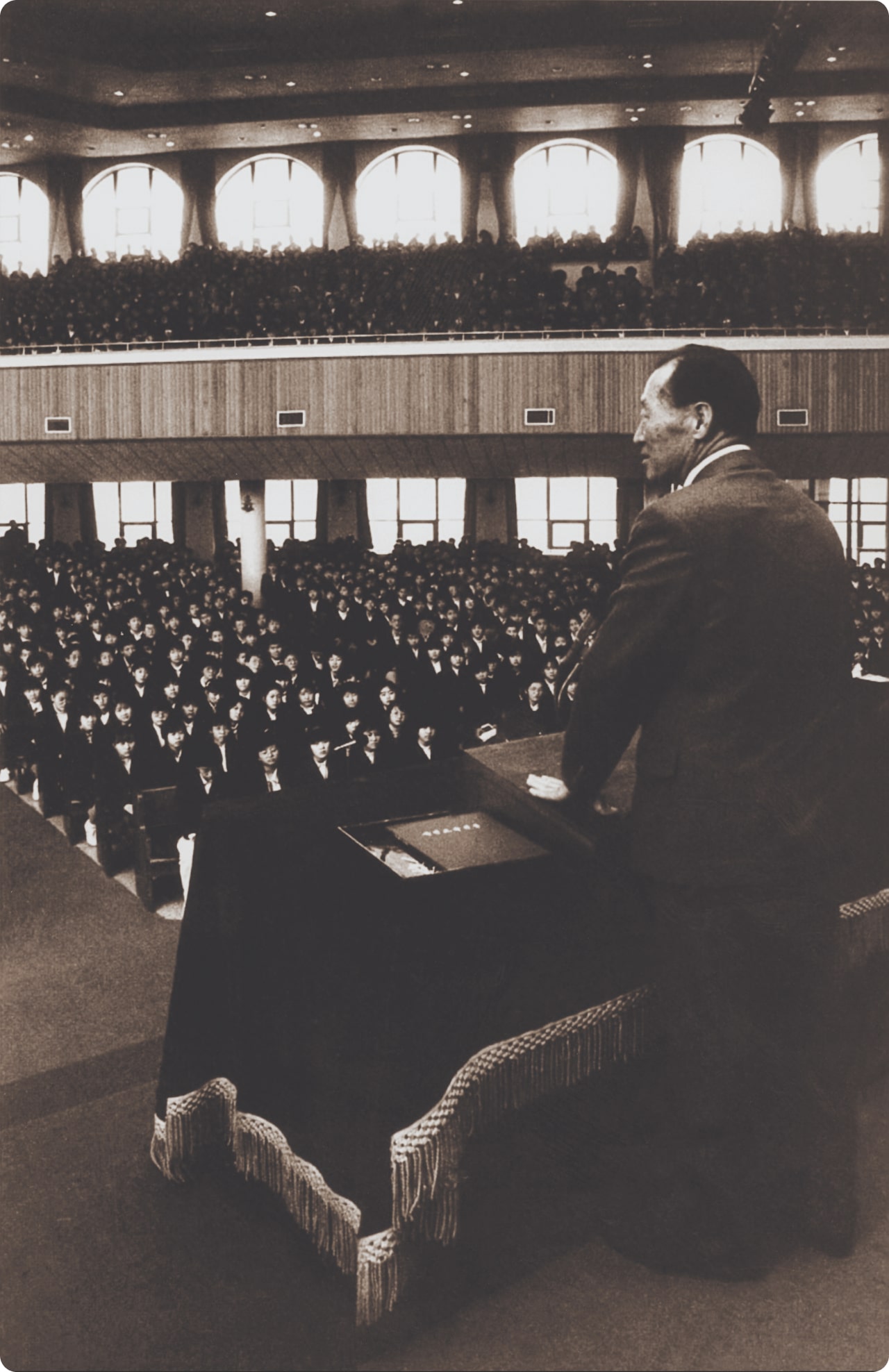
Asan encouraging graduates at the Hyundai High School graduation ceremony and realizing his unfulfilled dream by establishing schools.
Education
People were considered far more valuable than capital or technology. Asan believed that people were the driving force behind societal progress. Therefore, Asan devoted himself to nurturing talent.
He established the University of Ulsan and Ulsan College in the region which became the pillar of industrial development. Asan won the hearts of schools, parents, and residents by supporting the establishment and operation of a local community education council.
Once carrying bricks and wood at the construction site of Korea University's building, Asan silently watched students at school, envying them with ample learning opportunities. Everytime, he gathered himself and dreamed of much more.
Asan fulfilled his long-cherished desire by nurturing successors and fostering talent. He drew a big picture by laying the cornerstone of education in various place. This spirit still vividly continues as it fosters true talents.
“ I firmly believe that people are the most valuable asset for the advancement of society.
Capital, resources, technology comes next. ”
During a speech at the sponsorship for local community schools in 1984
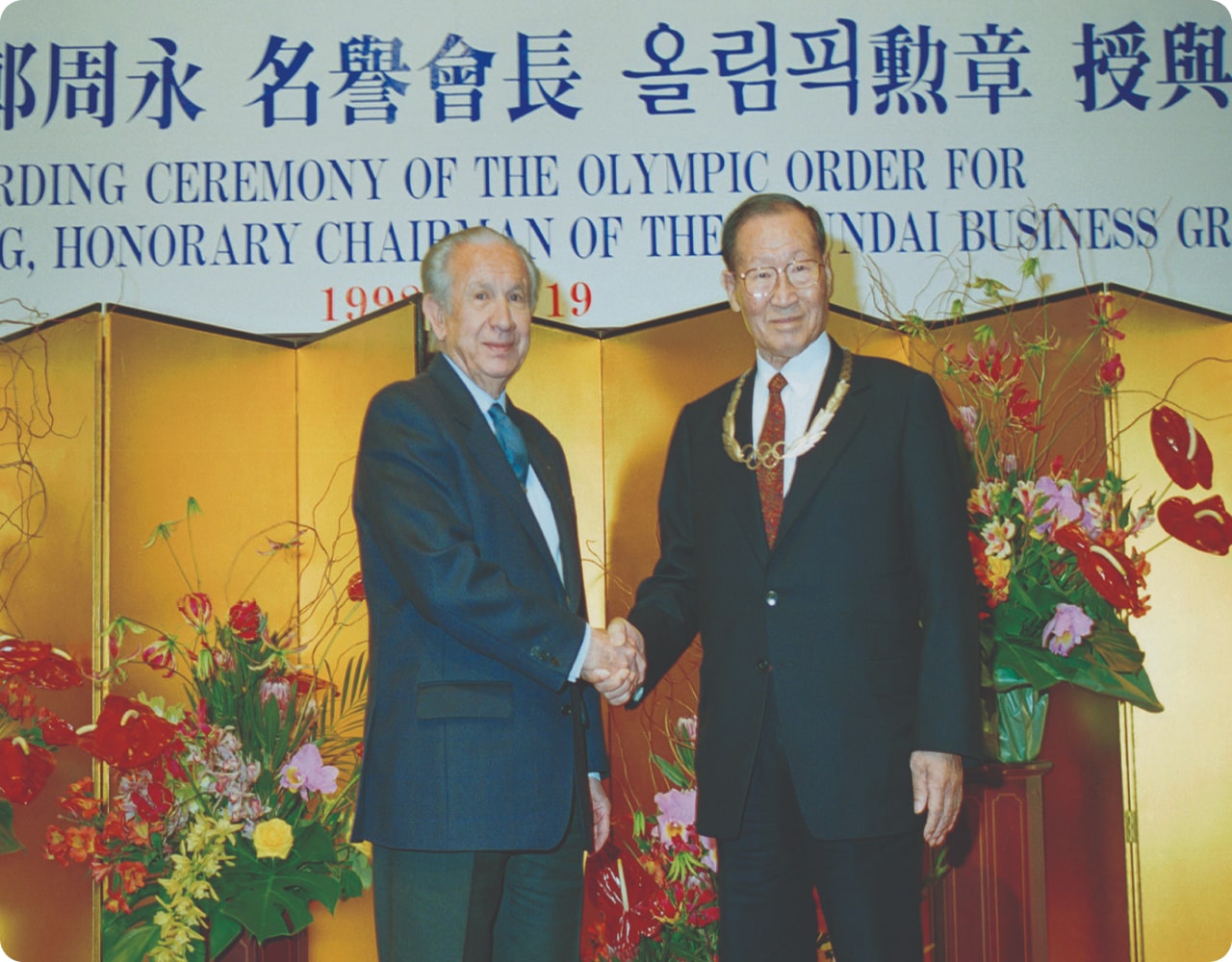
Asan receiving the Olympic Order for his contributions to international sports development. (Left: IOC President Samaranch, 1998)
Sports
Maturing one's character and harnessing the power to bring global peace and national development. Asan believed in the power of the sportsmanship.
Even though no one believed in the possibility, Asan took on the role of Chairman of the Seoul Olympic Bidding Committee and traveled to Baden-Baden, Germany, where the IOC session was held, just tinking about peace in the Korean Peninsula and the future economic development of the country. There, he met with IOC members from various countries and started persuading them. It was a tough battle against Nagoya, Japan. He exerted his best efforts with meticulous analysis and humility.
Bouquets were even sent to the hotel rooms of the other IOC members.
How did this all go? "Seoul, Korea!" Asan succeeded in hosting the Olympics.
As the Chairman of the Korean Sport & Olympic Committee, he expanded the scope of domestic sports. He dedicated his efforts to enhance competitiveness and nurture talents while preparing for the LA Olympics and the '86 Asian Games.
The sportsmanship that captivated him, along with the cheering in the stadiums, still live on in our hearts.
Politics
Asan believed that politics and economics must work together for national development. He believed that the country's future lies in management rather than in governance.
I want to challenge the existing system
and inject vitality to the future of our people. “
With the vision of "great politics," Asan founded the Tongil Kukmindang (United People's Party). It was his sincerity that moved hearts as he was able to secure 31 seats in the National Assembly within just 45 days of its founding. Then he stood as a candidate in the presidential race.
I may not have been elected,
but I have no regrets. “
While this may have been another one of his hardships, it was an important wake-up call for all of us to address national tasks.
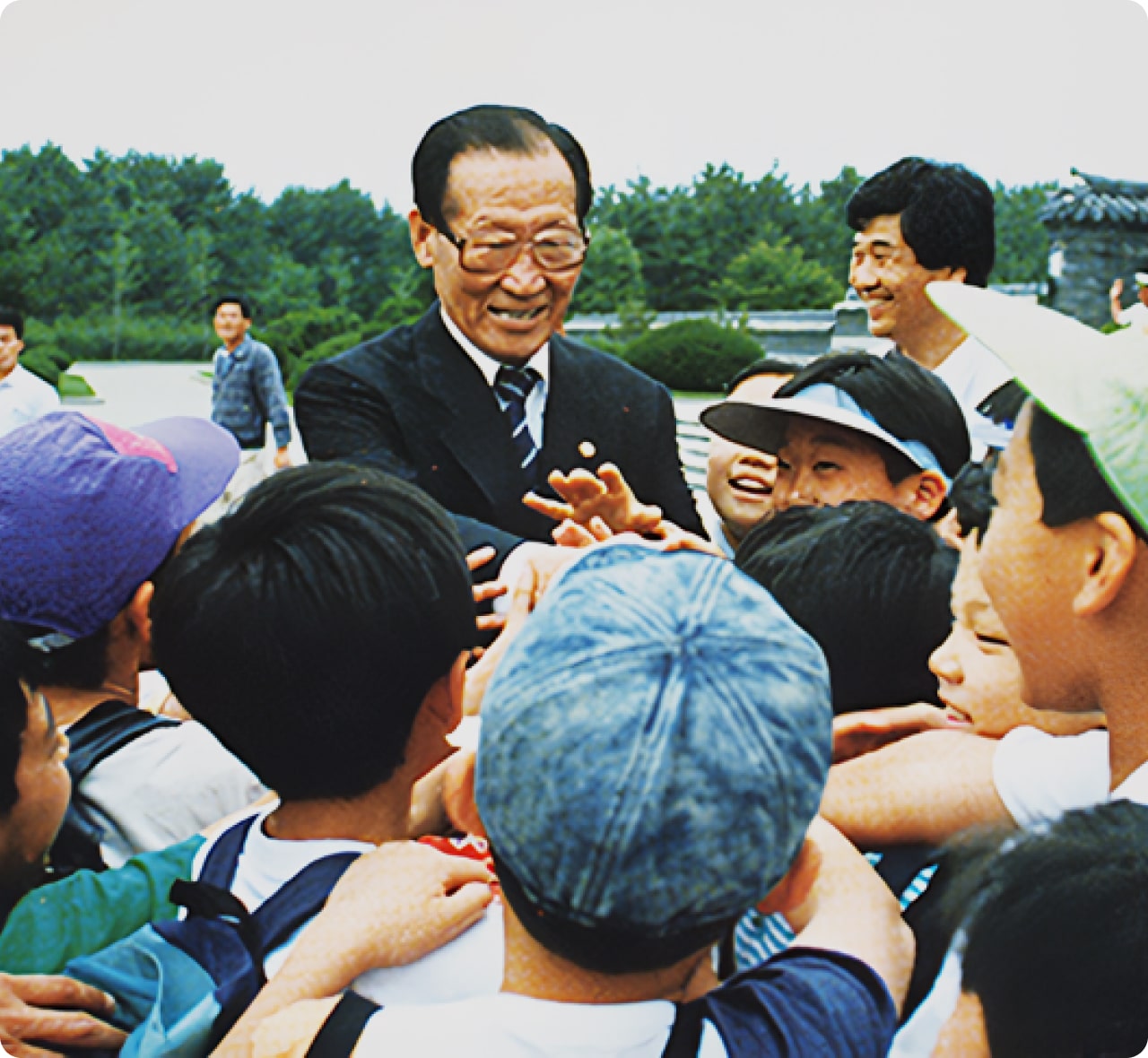
Asan delighted by the cheers of children during his presidential campaign. He was a kind grandfather figure who encouraged the infinite potential of children. (1992)
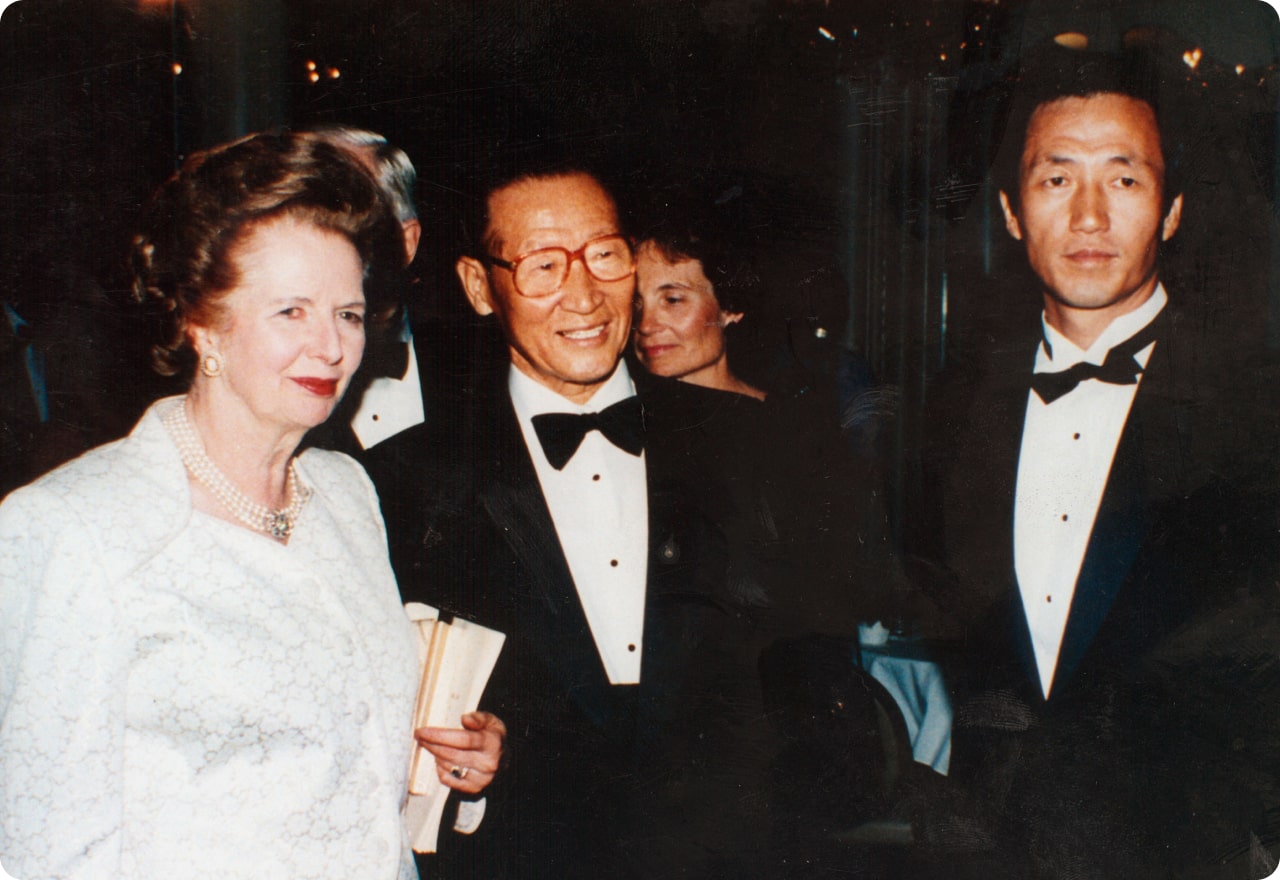
Asan and Chung Mong-joon with British Prime Minister Thatcher (late 1980)
International Exchanges
There are markets all over the world
where you can yield results of your efforts. “
Borders meant nothing to Asan. His business activities were global from the start.
In a rapidly changing era, he joined hands with global leaders to create shared prosperity and a future visions. This spread out to different countries where he constructed national infrastructure and dedicated efforts to their development.
He traveled the world for joint development efforts, participating in organizations like the Korea-Arab Society, the Korea-Africa Foundation, and the ROK-USSR Economic Association. He also played a significant role in normalizing diplomatic relations with the Soviet Union.
Still remembered as a partner for peace and development, Asan remains in people's hearts worldwide.
Inter-Korean Relations
The inter-Korean exchange projects stemmed from the belief that the country's future depends on reconciliation and peace, and that someone must dedicate themselves to the mutual prosperity of North and South.
Asan broke down the walls of both nations through sports and cultural exchanges, promoting joint farming projects, industrial development, and the establishment of special economic zones for the well-being of the North and South.
On June 15, 1998, he led 500 well-raised cows from Seosan farm through the DMZ, the symbol of inter-Korean confrontation. Asan helped alleviate the deep resentment in our people's hearts.
He also paved the way for the Geumgangsan Tourism Project, a foundation for joint prosperity of the North and South.

Crossing the DMZ with a herd of cattle hoping for reunification. The 70 won earned from selling a calf during his escape grew into 1,001 head of cattle (two rounds of donation), heading back to Asan's hometown. (1998)
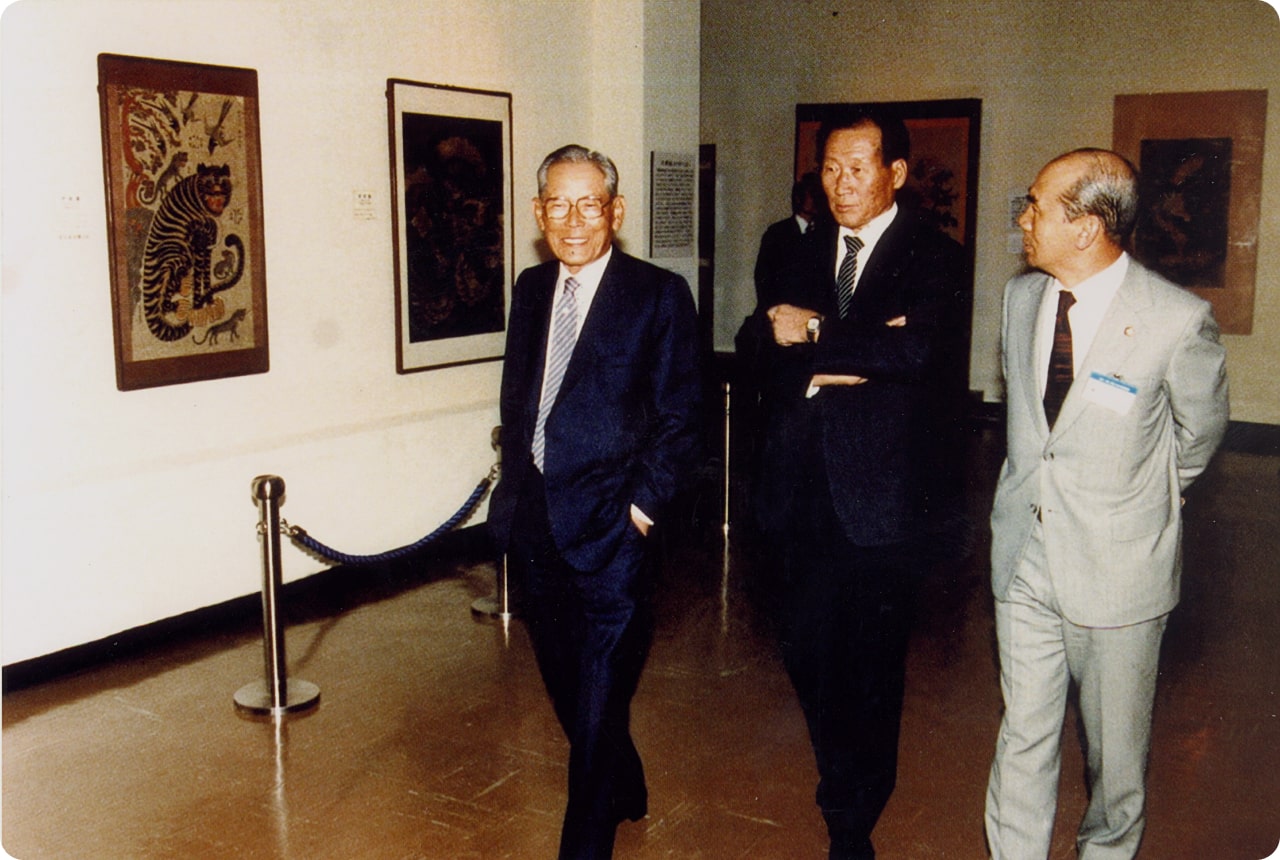
Together with Samsung Chairman Lee Byung-chul (left) and POSCO Chairman Park Tae-joon (right) at an exhibition held at the Ho-Am Art Museum. (1983)
Federation of Korean Industries (FKI)
Asan believed that the role and mission of great business men were to give back to the national economy and pioneer the nation's modernization with their businesses built on hard work. He thought that the Government should cut business interference and respect their freedom.
As Chairman of the Federation of Korean Industries (FKI) for ten years, Asan assisted economic construction and development while creating an environment for businesses to operate creatively. It proposed various financial policies and paved the way for exchanges with many countries worldwide.
The efforts and philosophy of Asan are enshrined in the shining fruits of development we enjoy today.